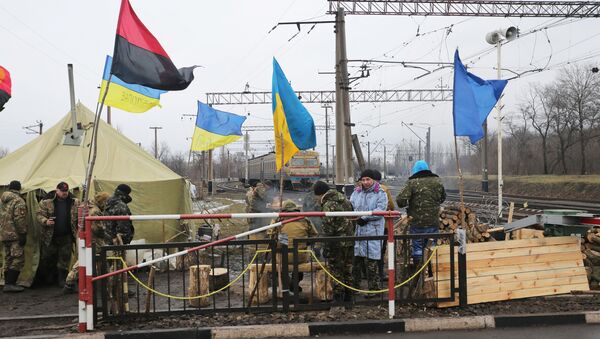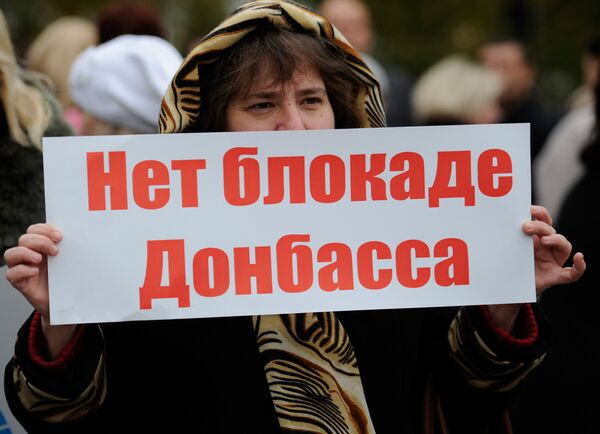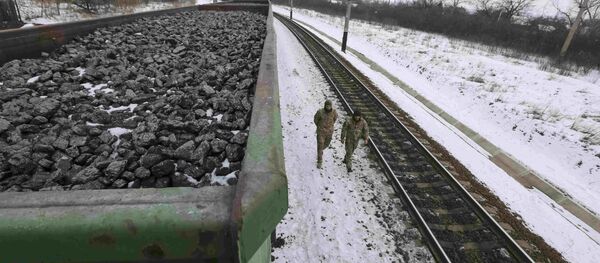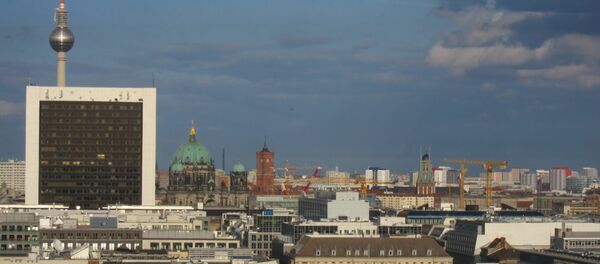On Thursday, US Department of State spokesperson Mark Toner said that the US wants to see the economic blockade of the eastern Ukrainian region of Donbass by Kiev "resolved," as it will affect the implantation of the Minsk agreements.
Earlier in the day France joined Germany, a fellow broker of the Minsk agreements, in expressing concern over the latest developments in Ukraine.
"France is also very concerned by the Ukrainian government’s decision… to impose a temporary blockade on the transportation of goods to the eastern part of the country. We call on the Ukrainian authorities to continue their efforts to lift the blockade of railroads at the contact line," the foreign ministry in Paris said.
On Wednesday, German Foreign Ministry Spokesman Martin Schaefer expressed concern about transport blockade of the self-proclaimed Donetsk People's Republic (DPR) and Lugansk People’s Republic (LPR), adding that it will only strengthen the region's aspiration for separation.
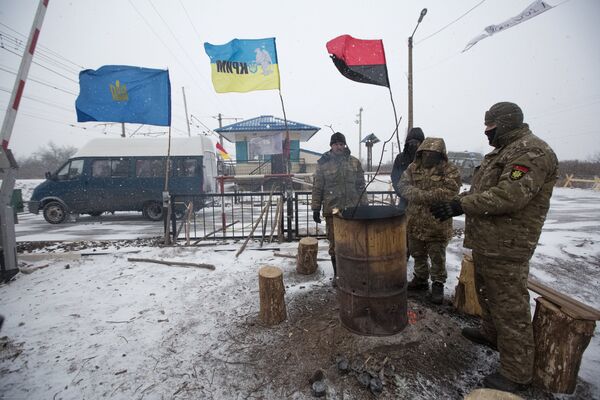
The remarks follow Petro Poroshenko's proposal to the National Security and Defense Council of Ukraine (NSDC) and its further decision to completely cut transport links with the republics until the enterprises being managed by the regions are returned to Kiev's control.
Sputnik Polska sat down with Polish politician and public official Janusz Niedźwiedzki, who has visited Ukraine on several occasions and during one of his visits was blocked in by Ukrainian nationalists in a hotel in Odessa for more than six hours.
"We've seen for a long time that the Ukrainian government has fallen hostage to Ukrainian nationalism," he told Sputnik.
"On the one hand, the organizers of the blockade of Donbass are pursuing it under the pretext of restoring the sovereignty of Ukraine and for reclaiming control over the breakaway regions," he said.
In this context, it is difficult for the Ukrainian authorities to oppose the blockade.
However on the other hand, he said, Germany and France are the "voice of reason."
"It is true that all the opinions and voices coming from Europe are seen in Ukraine as the most reliable and have more influence on the country's internal policy that the views and opinions of the Ukrainian politicians," Niedźwiedzki said.
The people in Ukraine think that the country's politicians are extremely corrupt and pursue only their own interests, he explained. Thus if any of the country's politicians makes the same appeal it will be instantly accused of betraying national interests for his personal plans.
"I even don't rule out that the Ukrainian authorities have actually asked Germany to comment on the issue," the Polish politician suggested.
"Ukraine has long become a purely theoretical state: the central government is unable to perform its obligations and has fallen hostage to the forces it once supported, I mean the nationalists," he said.
Niedźwiedzki further cited as examples of this "apathy of the authorities" numerous cases of the desecration of Polish monuments in Ukraine. Nobody is in control of the situation, he said, while blaming some "third power" for all the provocations.
"Each time the Kiev authorities are unable to deliver on their basic obligations, they blame somebody for provocations, insinuations, interference of foreign intelligence and of the so-called "third power." There is no supremacy of law, but a gradual atrophy of the state," he told Sputnik.
However all these efforts are being blocked by the forces which imposed the blockade on Donbass.
"Ukraine has fallen hostage to its nationalism due to intensive political struggle within the country and is unable both to control it and abandon it," he finally stated.

